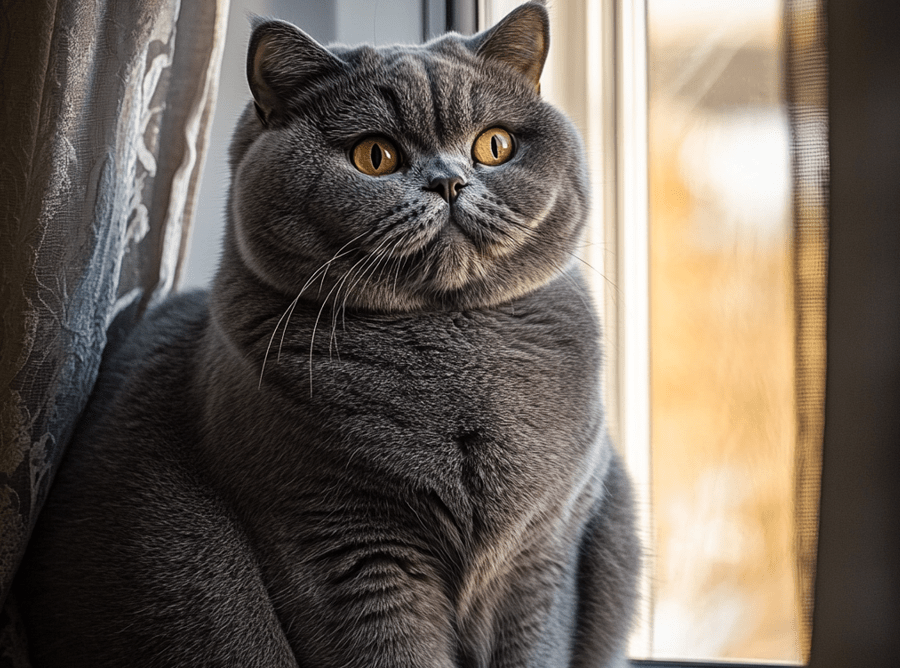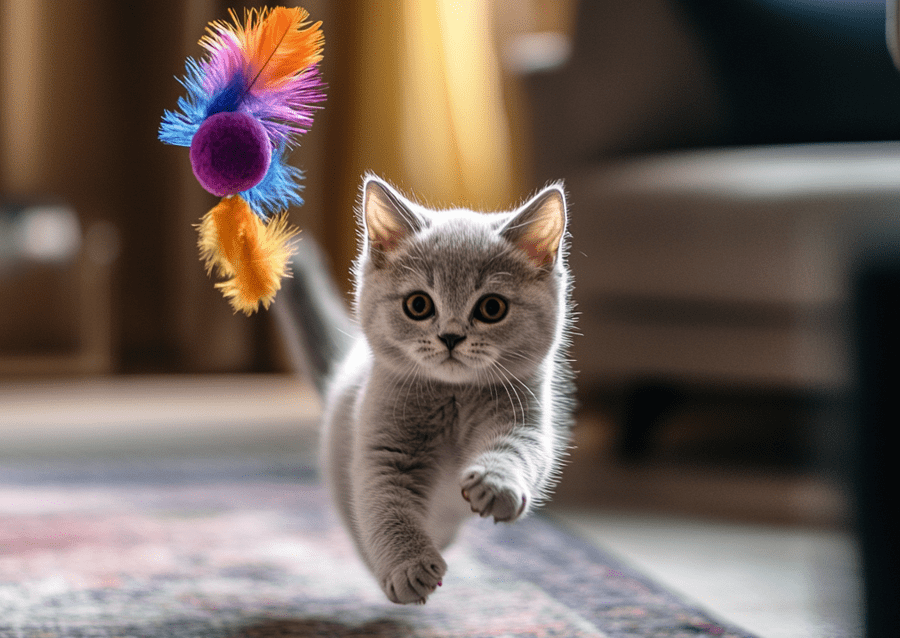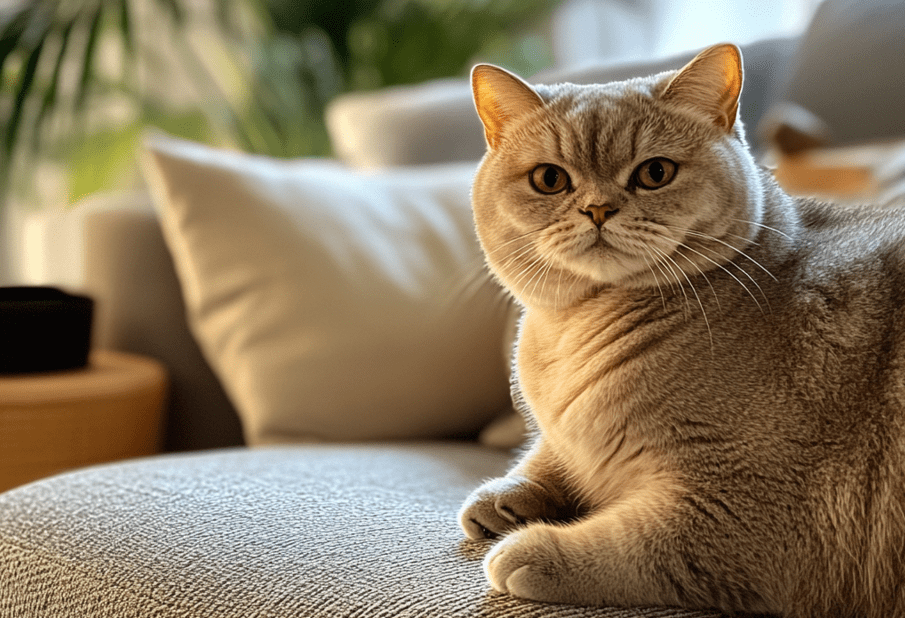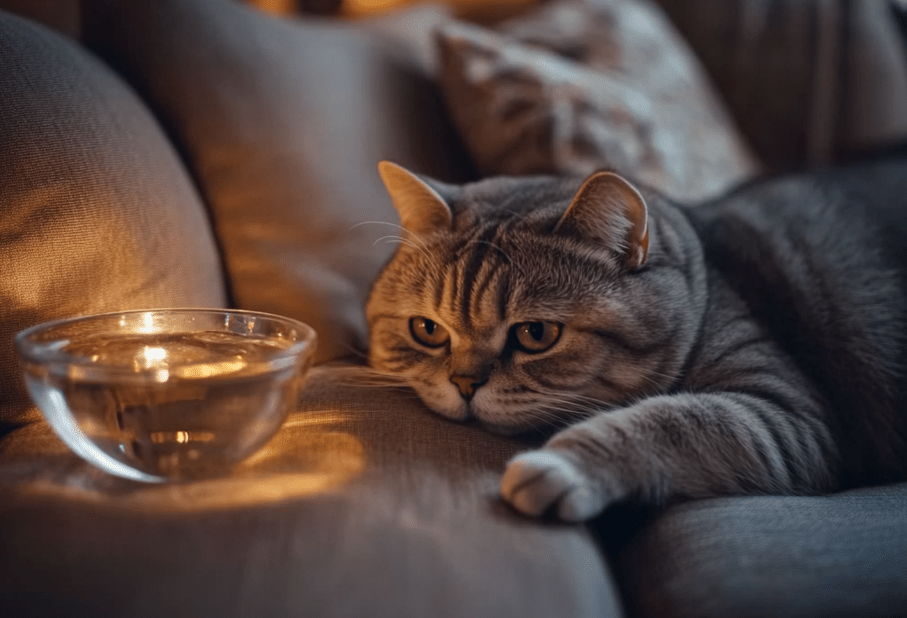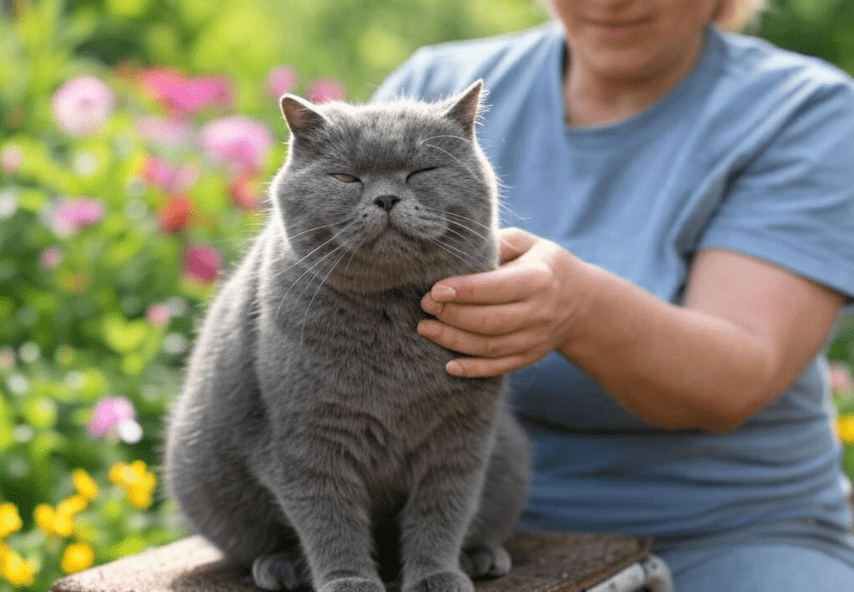
British Shorthairs are beloved for their plush coats and sturdy, muscular bodies, but their unique needs require careful attention to diet. When choosing cat food, knowing which ingredients to avoid in British Shorthair cat food is crucial to prevent health issues like obesity, allergies, and urinary problems. This comprehensive guide highlights the top five ingredients to steer clear of, ensuring your British Shorthair thrives. By understanding harmful additives and fillers, you can make informed choices for your feline friend’s long-term health and happiness.
Why Ingredient Selection Matters for British Shorthairs
British Shorthairs are prone to specific health concerns, including weight gain, urinary tract issues, and food sensitivities. Their low-energy, stocky nature makes them susceptible to obesity, which can lead to diabetes or joint problems. Poor-quality ingredients in cat food can exacerbate these risks, while high-quality, nutrient-dense diets support their overall well-being. Choosing the right food means avoiding harmful ingredients that could compromise their health, ensuring they live a long, vibrant life—often 12–20 years with proper care.
This article dives into the top five ingredients to avoid, explains why they’re problematic, and offers tips for selecting safe, high-quality cat food for your British Shorthair.
Top 5 Ingredients to Avoid in British Shorthair Cat Food
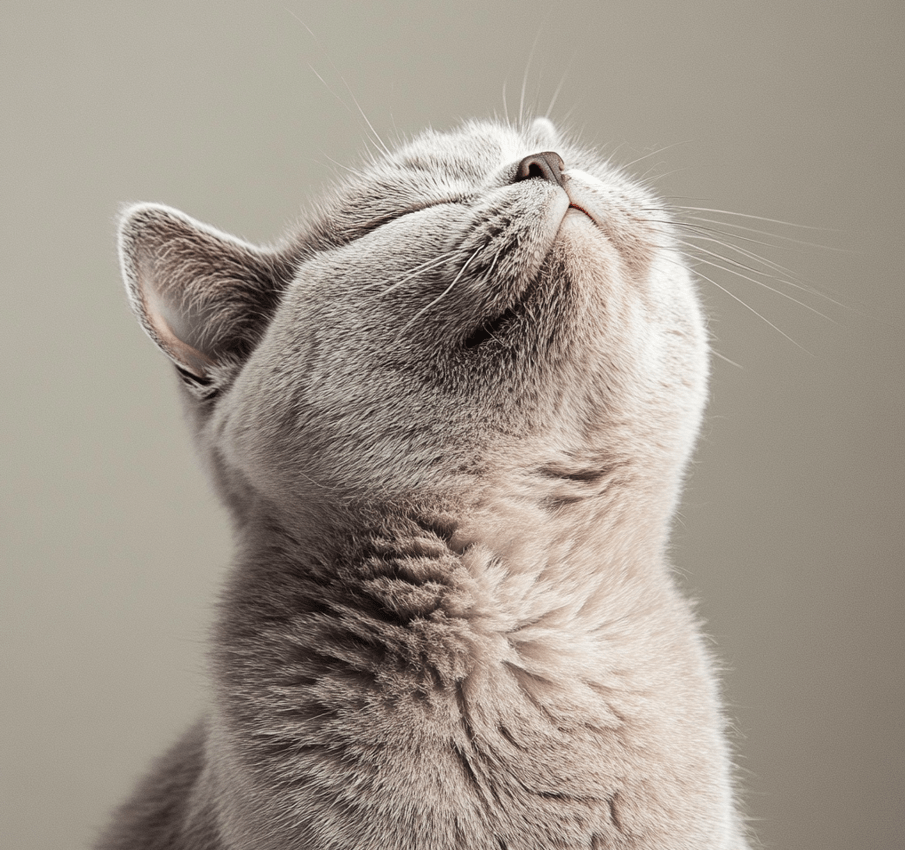
1. Artificial Preservatives (BHA, BHT, Ethoxyquin)
Why Avoid Them?
Artificial preservatives like butylated hydroxyanisole (BHA), butylated hydroxytoluene (BHT), and ethoxyquin are used to extend the shelf life of cat food. However, these chemicals have been linked to potential health risks, including liver and kidney damage, allergic reactions, and even cancer in animal studies. British Shorthairs, with their predisposition to obesity and related organ stress, are particularly vulnerable to the long-term effects of these additives.
Impact on British Shorthairs:
These preservatives can accumulate in your cat’s system, potentially causing inflammation or exacerbating conditions like diabetes. For a breed prone to weight gain, any ingredient that stresses the liver or kidneys should be avoided to maintain optimal health.
What to Look For Instead:
Choose cat foods preserved with natural alternatives like tocopherols (vitamin E) or ascorbic acid (vitamin C). Check the ingredient list for terms like “mixed tocopherols” to ensure a safer option.
Example Brands:
Royal Canin British Shorthair and Wellness Core use natural preservatives, making them safer choices.
2. Corn, Wheat, and Soy (Grain Fillers)
Why Avoid Them?
Corn, wheat, and soy are common fillers in low-quality cat foods, used to bulk up the product and reduce costs. Cats, including British Shorthairs, are obligate carnivores, meaning their bodies are designed to derive nutrients primarily from animal-based proteins, not grains. These fillers offer little nutritional value and can contribute to weight gain, digestive issues, and food allergies.
Impact on British Shorthairs:
British Shorthairs’ low activity levels make them prone to obesity, and high-carb fillers like corn can lead to excessive calorie intake without satisfying their nutritional needs. Additionally, grains may trigger allergies, manifesting as itchy skin, ear infections, or gastrointestinal upset in sensitive cats.
What to Look For Instead:
Opt for grain-free or low-grain cat foods with high-quality protein sources (e.g., chicken, turkey, or fish) as the first ingredient. Look for carbohydrate sources like sweet potatoes or peas, which are easier for cats to digest.
Example Brands:
Orijen and Acana offer grain-free formulas with high protein content, ideal for British Shorthairs.
3. By-Products and Unspecified Meat Meals
Why Avoid Them?
Ingredients labeled as “meat by-products,” “poultry by-products,” or generic “meat meal” are often low-quality, undefined parts of animals (e.g., feathers, hooves, or organs) that provide minimal nutritional benefits. These vague terms lack transparency, making it hard to know what your cat is consuming. Poor-quality proteins can strain a cat’s digestive system and fail to meet their high protein requirements.
Impact on British Shorthairs:
British Shorthairs need high-quality, bioavailable protein to maintain their muscular build and support heart health (due to their need for taurine, an amino acid found in meat). By-products may lead to nutrient deficiencies, poor coat quality, and digestive issues, particularly in a breed prone to sensitivities.
What to Look For Instead:
Choose foods listing specific protein sources, such as “chicken,” “turkey,” or “salmon,” as the primary ingredient. Named meat meals (e.g., “chicken meal”) are acceptable if they’re high-quality and clearly identified.
Example Brands:
Tiki Cat and Blue Buffalo use named protein sources, ensuring better quality for your British Shorthair.
4. Artificial Colors and Flavors
Why Avoid Them?
Artificial colors (e.g., Red 40, Yellow 5) and flavors are added to make cat food visually appealing to owners or more palatable to cats. However, these additives serve no nutritional purpose and may cause allergic reactions, hyperactivity, or long-term health issues. Cats don’t care about the color of their food, and natural flavors from real meat are sufficient for palatability.
Impact on British Shorthairs:
British Shorthairs with sensitive skin or digestive systems may react to artificial additives with symptoms like itching, vomiting, or diarrhea. Avoiding these ingredients reduces the risk of food sensitivities, which can be common in this breed.
What to Look For Instead:
Select cat foods with natural flavorings derived from real meat or broth. Avoid any ingredient list mentioning “artificial flavor” or specific dyes like “Blue 2” or “Red 40.”
Example Brands:
Hill’s Science Diet and Instinct avoid artificial colors and flavors, focusing on natural ingredients.
5. Excessive Carbohydrates (Sugar, Dextrose, Corn Syrup)
Why Avoid Them?
Sugars like dextrose, corn syrup, or high levels of starchy carbohydrates (e.g., white potatoes) are sometimes added to cat food for texture or palatability. Cats have no biological need for sugars, and excessive carbs can lead to weight gain, diabetes, and dental issues. British Shorthairs, with their predisposition to obesity, are particularly at risk from high-carb diets.
Impact on British Shorthairs:
Excessive carbohydrates contribute to calorie overload, making it harder to maintain a healthy weight. For a breed already prone to diabetes, sugary additives can increase the risk of insulin resistance over time.
What to Look For Instead:
Choose low-carb cat foods with minimal starch or sugar. Wet foods typically have lower carb content than dry foods, making them a good option for British Shorthairs. Check for ingredient lists free of “dextrose,” “corn syrup,” or “cane molasses.”
Example Brands:
Wellness Core Wet and Ziwi Peak offer low-carb, high-protein options suitable for British Shorthairs.
Why These Ingredients Are Especially Harmful for British Shorthairs
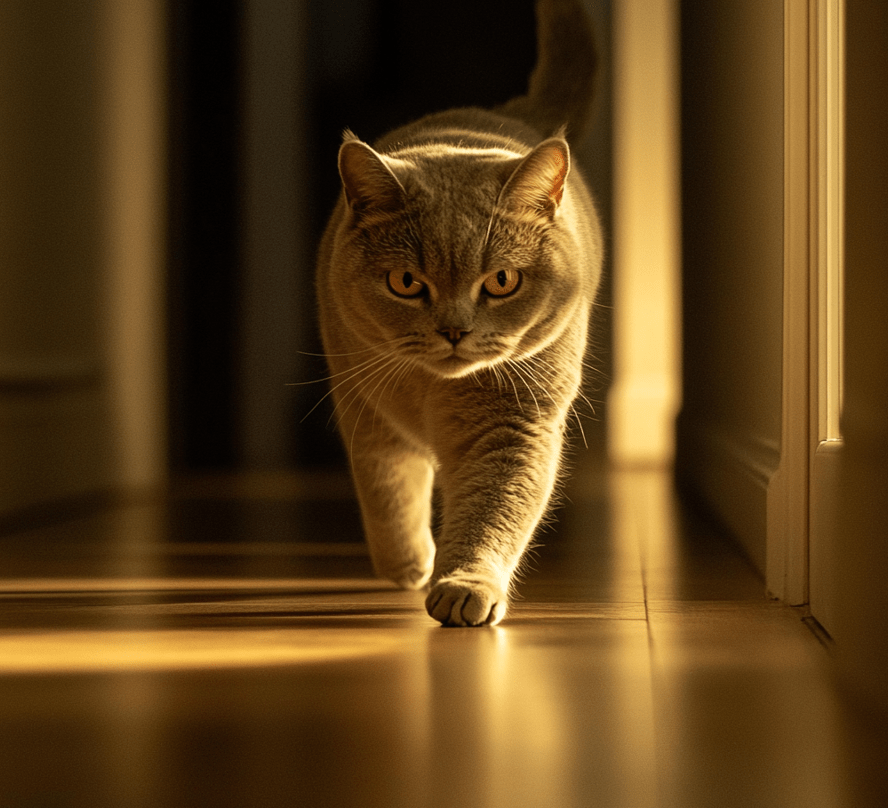
British Shorthairs have unique physiological traits that make poor-quality ingredients particularly risky:
Obesity Risk: Their stocky build and low-energy lifestyle mean extra calories from fillers or sugars quickly lead to weight gain, increasing the likelihood of arthritis, diabetes, and heart disease.
Urinary Health: This breed is prone to urinary tract issues like cystitis or bladder stones. Low-quality ingredients, especially those low in moisture (e.g., dry foods with fillers), can exacerbate dehydration and urinary problems.
Food Sensitivities: British Shorthairs may develop allergies to grains, artificial additives, or low-quality proteins, leading to skin issues, ear infections, or chronic digestive problems.
Heart Health: As obligate carnivores, they require taurine from high-quality meat. By-products or fillers dilute taurine content, potentially affecting heart function over time.
By avoiding these five ingredients, you can reduce these risks and support your British Shorthair’s long-term health.
How to Read Cat Food Labels Effectively
Understanding cat food labels is key to avoiding harmful ingredients. Here’s a step-by-step guide:
Check the First Five Ingredients: These make up the bulk of the food. Look for named proteins (e.g., “chicken”) and avoid vague terms like “by-products” or “meat meal.”
Look for AAFCO Approval: Ensure the food meets Association of American Feed Control Officials standards for complete and balanced nutrition.
Avoid Red Flags: Watch for artificial preservatives, colors, flavors, or sugars listed anywhere on the label.
Check for Moisture Content: Wet foods (70–80% moisture) are better for urinary health than dry foods (10% moisture).
Verify Calorie Content: Ensure the food aligns with your cat’s caloric needs (20–30 calories per pound of body weight daily for adults).
Tip: If an ingredient sounds like a chemical (e.g., “propyl gallate”) or is hard to pronounce, research it or avoid it until you confirm it’s safe.
Health Risks of Poor-Quality Cat Food
Feeding your British Shorthair food with harmful ingredients can lead to:
Obesity: Fillers and sugars add empty calories, contributing to weight gain and related diseases.
Allergies: Grains, artificial additives, or by-products may trigger itching, hair loss, or ear infections.
Urinary Issues: Low-moisture foods with fillers can lead to concentrated urine, increasing the risk of crystals or blockages.
Digestive Problems: Poor-quality ingredients may cause vomiting, diarrhea, or chronic gut inflammation.
Nutrient Deficiencies: By-products and fillers lack essential nutrients like taurine, affecting heart and eye health.
Regular vet checkups can help detect these issues early, but prevention through diet is the best approach.
Tips for Choosing Safe, High-Quality Cat Food
To ensure your British Shorthair’s diet is free of harmful ingredients, follow these tips:
Prioritize Protein: Choose foods with named animal proteins (e.g., chicken, salmon) as the first ingredient.
Opt for Wet or Raw Food: These provide higher moisture content, supporting urinary health and reducing carb intake.
Go Grain-Free or Low-Grain: If your cat isn’t allergic, limited whole grains like rice are okay, but avoid corn, wheat, or soy.
Check for Natural Preservatives: Look for tocopherols or ascorbic acid instead of BHA, BHT, or ethoxyquin.
Consult Your Vet: If your British Shorthair has health issues like allergies or obesity, ask for tailored food recommendations.
Transition Gradually: Switch to new foods over 7–10 days to avoid digestive upset.
Recommended Brands:
Wet Food: Wellness Core, Tiki Cat, Weruva.
Dry Food: Orijen, Acana, Royal Canin British Shorthair.
Raw Food: Stella & Chewy’s, Primal (consult your vet for safe handling).
Special Considerations for British Shorthairs
Obesity Prevention
To avoid weight gain from poor-quality ingredients:
Measure portions precisely using a kitchen scale.
Avoid free-feeding dry food, which often contains fillers.
Encourage 10–15 minutes of daily play with toys like laser pointers or feather wands.
Urinary Health
Support urinary health by:
Choosing wet or raw foods for higher moisture.
Providing a pet water fountain to encourage drinking.
Avoiding low-quality dry foods with excessive carbs or artificial additives.
Food Allergies
If your British Shorthair shows signs of allergies (itching, vomiting, or ear issues):
Try limited-ingredient diets (e.g., Instinct Limited Ingredient).
Avoid common allergens like grains, chicken, or artificial additives.
Work with your vet to identify triggers through an elimination diet.
Sample Feeding Plan with Safe Ingredients
Profile: 10-pound adult British Shorthair, neutered, indoor, no health issues.
Daily Calorie Need: 200–250 calories.
Food Choice: Wet and dry food, free of harmful ingredients.
7 AM (Wet Food): 3 ounces of Tiki Cat Puka Puka Luau (80–100 calories, chicken-based, no grains or artificial additives).
3 PM (Dry Food): 1/4 cup of Orijen Six Fish (100–120 calories, fish-based, grain-free, natural preservatives).
10 PM (Wet Food): 2 ounces of Tiki Cat Puka Puka Luau (50–75 calories).
Total: ~230 calories, balanced and safe.
Hydration: Fresh water via a fountain, changed daily.
Exercise: 15 minutes of play with a feather toy.
When to Consult a Veterinarian
Contact your vet if your British Shorthair shows:
1.Weight gain or loss despite a balanced diet.
2.Signs of allergies (itching, ear infections, vomiting).
3.Urinary issues (straining, blood in urine, or frequent urination).
4.Lethargy, poor coat quality, or changes in appetite.
Your vet can recommend diagnostic tests or specialized diets (e.g., prescription foods for urinary or weight issues) to address specific concerns.
Conclusion

Choosing the right cat food for your British Shorthair means knowing which ingredients to avoid in British Shorthair cat food. By steering clear of artificial preservatives, grain fillers, by-products, artificial colors, and excessive carbohydrates, you can protect your cat from obesity, allergies, and urinary issues. Prioritize high-quality, protein-rich foods with natural ingredients, and always read labels carefully. With this guide, you’re equipped to make informed decisions that keep your British Shorthair healthy, happy, and thriving for years to come.
For personalized advice, consult your veterinarian to tailor your cat’s diet to their unique needs. Here’s to a purr-fectly healthy British Shorthair!

